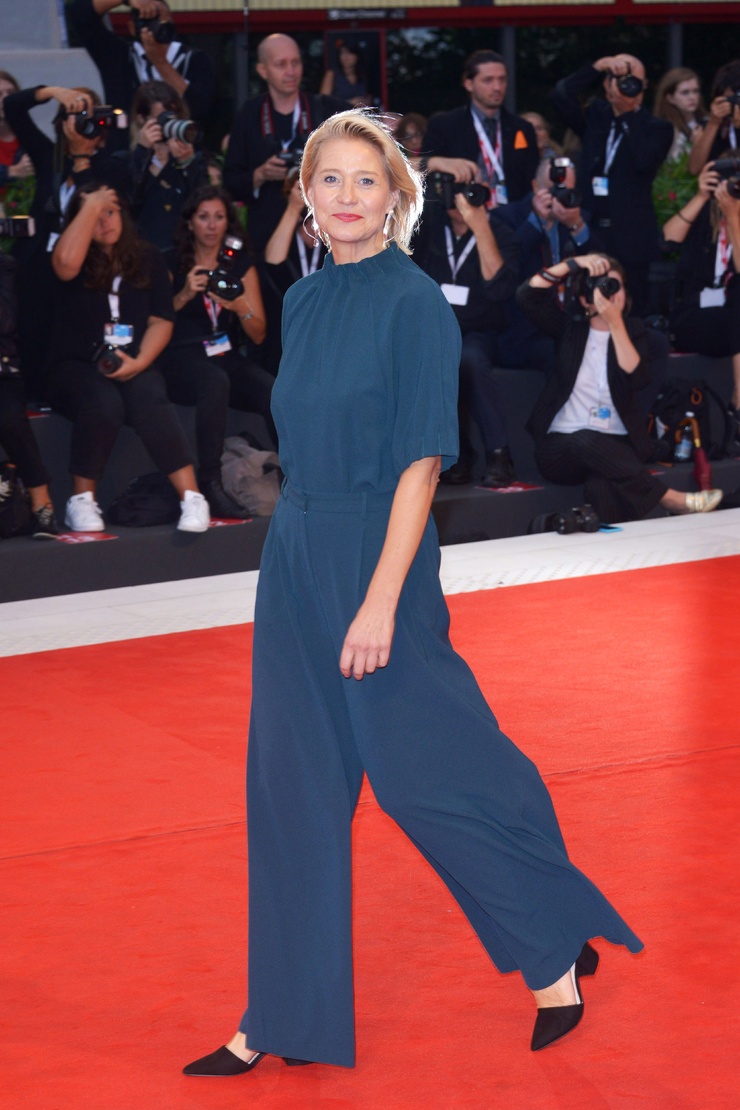

She won praise for her film debut in the romantic drama "Springflod" as Pauline, an innocent country girl who falls in love with a reckless city boy, after which she enrolled in the Danish National School of Theater. The annual competition, which determines Denmark's entry into the long-running "Eurovision Song Contest," launched Dyrholm's career as an entertainer and ignited her interest in acting. Dyrholm spent her youth performing with a local Danish orchestra and became a household name in 1987 when her group, Trine & The Moonlighters, took third place in the Dansk Melodi Grand Prix. A minor Vinterberg film.Trine Dyrholm is one of Denmark's most famous and successful actresses as well as an accomplished singer-songwriter. But Anna’s terrible progress towards mental breakdown is very commandingly performed. But the rest of the time there is a lot of subdued murmuring, followed by shouting. There is one tremendously good moment in The Commune: when Freja discovers what is going on between Erik and Anna, and for a long, long minute it isn’t at all clear how she is going to react. That was much more confident in its (light-hearted) tone and more interesting about the internal group dynamics of a bunch of people living together. It is in fact very different from the film I thought it might resemble: Lukas Moodysson’s 2000 comedy Together, a film about a commune in Sweden in about the same era. The title is a bit misleading: there is no real communal plot development. Nothing, or almost nothing, of any consequence happens to these people. The lack of development in the supporting cast is a problem. The ensemble that makes up the commune itself stays more or less constant in its emotional temperature: it is Erik’s relationship with Anna, and with his beautiful student Emma (Helene Reingaard Neumann), which is the central point of the film. There is also a child with a heart condition who keeps saying he will not live beyond his ninth birthday – a statement which everyone keeps regarding as an adorable eccentricity, but which the film, with various tense moments, keeps reminding us might be more serious.Īctually, and unexpectedly, the source of this upset comes from without rather than within. There is shy, penniless Allon (Fares Fares), who keeps bursting into tears, boozy Ole (Lars Ranthe), easygoing Mona (Julie Agnete Vang), earnest Ditte (Anne Gry Henningsen) and cuddly Steffen (Magnus Millang).

But he amiably goes along with things, and they assemble a gallery of hirsuite, laid-back, cigarette-smoking supporting players for their new drama of communal living. But fluent and confident it certainly is.Īt first, Anna is in charge of what is happening with the help of Freja, she talks Erik into accepting the commune idea, which he finds entirely alien. Like some of the films of Vinterberg’s Danish contemporary Susanne Bier, this looks like the basis for a commercial and easygoing Hollywood remake. It has none of the ferocity and seriousness of Vinterberg movies such as The Celebration (1998) and The Hunt (2014). And even with Dyrholm, to be frank, it is a slightly middleweight drama, which would perhaps have looked better over three small-screen episodes. Without Dyrholm, The Commune might have just been a breezily watchable, if tonally uncertain soapy melodrama, something to make British audiences in Berlin feel nostalgic for the steamy attractions of TV’s Bouquet of Barbed Wire. Is she allowed ownership of her feelings – and indeed her husband – or not?
#Trine dyrholm hot how to#
But having set off down this bold new route of caring and sharing, Anna is unsure how to react when there is a crisis in her own relationship.
#Trine dyrholm hot professional#
When Erik inherits his late father’s gigantic family home, Anna suggests they invite various friends and professional acquaintances to move in with them, and so stave off middle-aged, middle-class ennui with a daring experiment in collective living and a stimulating atmosphere of group creativity. The setting is an emotionally fraught commune – what other kind is there? – in 1970s Copenhagen Dyrholm is Anna, a local television newsreader, married to rumpled and sexy university lecturer Erik, played by Ulrich Thomsen they have a shy and intelligent 14-year-old daughter, Freja (Martha Sofie Wallstrom Hansen).


 0 kommentar(er)
0 kommentar(er)
